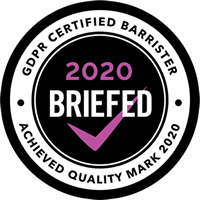
CAN A FOREIGN COURT EXERCISE POWERS CONFERRED ON ‘THE COURT’ UNDER ENGLISH STATUTE?
2nd September 2019
Michael Todd QC and Philip Gillyon consider whether a foreign court can exercise powers conferred on ‘the court’ under English statute, including under CA 2006 and IA 1986.
S 899 CA 2006 provides that ‘the court’ may sanction a scheme of arrangement between a company and its creditors or members. Clearly an English court has, but does a foreign court have, jurisdiction to sanction such a scheme?
Similarly, s 996 provides that if ‘the court’ is satisfied that a petition under s 994 (unfairly prejudicial conduct) is well founded, it may make such order as it thinks fit for giving relief in respect of the matters complained of. Can a foreign court entertain unfair prejudice proceedings in relation to the affairs of an English company?
Paragraph 2(a) Schedule B1 IA 1986 provides for the appointment of an administrator of a company by an administration order of ‘the court’ under paragraph 10. But can a foreign court make an administration order in relation to an English company?
For most practitioners, the initial reaction to each of those questions is likely to be that a foreign court would have no jurisdiction to do so. This is because ‘the court’ is generally defined as a court in the jurisdiction which enacted the legislation. Thus, s 1156 CA 2006 defines ‘the court’ as: (a) in England and Wales, the High Court or a County Court; (b) in Scotland, the Court of Session or the sheriff court; and (c) in Northern Ireland, the High Court.
Similarly, under IA 1986 for the provisions concerning company insolvency and companies winding up, contained in the First Group of Parts of that Act (Parts I – VII), s 251 defines ‘the court’ as ‘the court having jurisdiction to wind up the company’. S 117 confers that jurisdiction on the High Court (s117(1)) and the County Court (s 117(2)) in respect of a company registered in England and Wales; and s 120 confers that jurisdiction on the Court of Session in respect of a company registered in Scotland (s 120(1)).
However, the decision of the Privy Council in UBS AG New York v Fairfield Sentry Ltd [2019] UKPC 20 suggests a different answer.
Fairfield Sentry
In Fairfield Sentry, the Privy Council was concerned with whether a statutory claim under s 249 Insolvency Act 2003 (IA 2003) of the British Virgin Islands (BVI) could be pursued in the US before the US Bankruptcy Court in New York. S 249 (which corresponds to the English s 240 IA 1986) empowers the High Court of the BVI (BVI High Court) on the application of the office-holder to set aside voidable transactions, such as an unfair preference or an undervalue transaction (s 244(1)), and to make orders to restore the position to what it would have been if the company had not entered into such transactions. The question was whether that jurisdiction could be exercised by other courts outside the BVI, in that case the New York court, if the non-BVI court considered it appropriate to do so. The Privy Council held that it could.
The issue arose in relation to the refusal by the first instance judge in the BVI, upheld by the BVI Court of Appeal, to grant an anti-suit injunction to restrain the pursuit of those proceedings in the US by the liquidators of Fairfield Sentry Ltd, a Madoff feeder fund.
Why is this decision important?
The decision in Fairfield Sentry is important because it raises the issue as to whether statutory claims or applications, perhaps previously thought to confer jurisdiction exclusively on our domestic courts, may be pursued and determined in courts outside England and Wales.
In particular, it raises the issue whether the decision will be interpreted as being confined to liquidation cases, where a foreign court is asked to exercise a power in support of a domestic liquidation, or is more general in its application.
There can be no doubt that the courts of jurisdictions outside England and Wales may entertain English common law claims, and grant relief in respect of them; the effectiveness of any such foreign decision is then a matter of recognition. And the courts of England and Wales frequently determine foreign law claims. Under English private international law principles, the law of a foreign jurisdiction is treated as a matter of fact upon which the courts will require expert evidence. Having considered that evidence, the courts in England and Wales will determine the foreign law claim according to that foreign law.
But what of statutory claims? Should statutory claims be treated any differently from common law claims? Is it open to a foreign court to entertain a claim based upon an English statute? Does the statute in question identify the only court in which the claim may be determined; or does the statute merely identify the court in which the claim is to be brought if brought in England and Wales?
It has long been thought that where the statute in question identifies, in relation to any particular matter, that an application may be to ‘the court’ and in respect of which ‘the court’ may grant relief, usually, if not always, ‘the court’ as defined in the statute (in England and Wales, the High Court and/or the County Court) is the only court which may entertain the claim and grant relief in respect of it. It might be different, it may be thought, if the relevant statute were to provide for an application to be made ‘to court’ without identifying which court.
There are many instances in CA 2006 in which the affairs of an English company may, ultimately, be regulated by ‘the court’ on an application to ‘the court’. For example:
(a) the rectification of the register of members jurisdiction: s 125;
(b) the derivative action jurisdiction: s 261;
(c) the court reduction of capital jurisdiction: s 645;
(d) the rectification of the register of charges jurisdiction: s 888;
(e) the scheme of arrangement jurisdiction: s 896;
(f) the unfair prejudice jurisdiction: s 994; and
(g) the restoration of a company to the register jurisdiction: s 1029.
Similarly, there are many instances in IA 1986, in which applications may be made to ‘the court’ to assist an enforcement or recovery process. For example:
(a) the winding up jurisdiction: ss 122 and 221;
(b) applications for the appointment of a provisional liquidator: s 135;
(c) the court’s power (i) to stay winding up proceedings: s 147(1); and (ii) to make calls on contributories: s 150(1);
(d) applications in respect of fraudulent and wrongful trading: ss 213 and 214; and
(e) applications to the court in respect of (i) transactions at an undervalue: s 238(2); and (ii) preferences: s 239(2).
This raises the question of whether the courts of, say, the US have jurisdiction to entertain and sanction a scheme of arrangement between a company and its members or creditors so as to be binding on that company and those members or creditors. Whilst a US court might be reluctant to entertain a scheme between an English company and its members, it may have a different view if the scheme is between that company and its US creditors, particularly where the law of the obligations to those creditors is US law.
Similarly, could proceedings seeking relief under s 996 CA 2006 in respect of unfairly prejudicial conduct of the affairs of an English company be brought before a foreign court for determination, or must such proceedings always be brought in the courts in England and Wales? If that is the only claim which is to be brought, it is not difficult to envisage a foreign court declining to exercise any jurisdiction which it may have; whereas if a foreign court is trying English common law causes of action it may be more disposed to entertain an additional claim under ss 994 to 996, particularly where the jurisdiction in which that court is situate has a similar statutory provision and jurisdiction.
But, in a sense, that is to conflate the existence of jurisdiction with its exercise.
In Fairfield Sentry, the Privy Council was concerned solely with the former. The liquidators commenced the proceedings in the US with the permission of the BVI High Court. UBS did not challenge that permission at that time.
UBS subsequently applied for an anti-suit injunction to restrain the continuation of the New York proceedings and argued that:
(a) s 249 IA 2003 conferred a right to grant relief only on the BVI High Court;
(b) no foreign (ie non-BVI) court was empowered to grant such relief;
(c) the BVI High Court had no authority to delegate power to grant such relief to a foreign court;
(d) such proceedings would (i) involve a misapplication of the BVI insolvency regime; (ii) introduce commercial uncertainty; and (iii) be oppressive to the interests of alleged debtors of the insolvent company; and
(e) the BVI court was the natural forum for the claims.
The Privy Council found that:
(a) the central question was whether s 249 either expressly or by necessary implication confers an exclusive jurisdiction on the BVI High Court, so as to preclude foreign courts, which assist in a BVI liquidation, from exercising such powers;
(b) s 249, when read with s 2, identifies ‘the court’ within the BVI which is to exercise the statutory powers which it confers;
(c) it contains no express prohibition on a foreign court from exercising those powers at the request of a BVI office holder, and no such prohibition arises by necessary implication;
(d) the section does not address the powers of a foreign court: one would not expect it to do so; and
(e) it is a question for each foreign court from which the BVI office holder seeks assistance to determine whether it can use the statutory tools which the BVI legislation has conferred on the BVI court.
It may be thought that the Privy Council reached that conclusion so as to aid office holders appointed by, and hence officers of, the BVI High Court. Indeed, the Privy Council found that its conclusion was supported by other provisions of the BVI Insolvency Act which confer powers on the BVI High Court to aid foreign proceedings. Thus, s 467 allows a foreign office-holder to apply to the BVI court for an order in aid of foreign proceedings; and s 467(5) provides that the BVI High Court in making such an order may apply the law of the BVI, or the law applicable to the foreign proceeding.
Similarly in England and Wales, in Hughes v Hannover Ruckversicherungs-AG [1997] 1 BCLC 497, and again in England v Smith [2001] Ch 419, the Court of Appeal applied the insolvency law and practice of Australia, being the jurisdiction of the court requesting assistance from the English court.
However, those provisions merely supported the conclusions which the Privy Council had reached. Apart from the specific references to liquidations and office holders, that reasoning could apply equally to any of the statutory provisions referred to above.
The question for practitioners is whether the reasoning of the Privy Council opens the floodgates to foreign courts seeking to assert, or being pressed to exercise, the jurisdiction conferred on the English High Court or County Court by UK domestic statutes. At the heart of that question is the issue as to whether those statutory provisions confer exclusive jurisdiction on courts in England and Wales. The answer suggested by Fairfield Sentryis that the foreign court will have jurisdiction to entertain such claims.
The issue is still open for consideration and decision by the courts of England and Wales, and in particular by the UK Supreme Court. They are not bound to follow Fairfield Sentry.
It remains to be seen whether the decision in Fairfield Sentry will be interpreted as being confined to liquidation cases, where a foreign court is asked to exercise a power in support of a domestic liquidation, or is more general in its application.
However, the reasoning of the Privy Council would appear to apply equally to all legislation in England and Wales, where the legislation does not expressly or by necessary implication confine the exercise of the provision in question to the domestic court. Whether or not a foreign court will actually exercise any such jurisdiction in the absence of a request from the courts of England and Wales is a wholly different question.
This case feature was first published in FromCounsel‘s Corporate Briefing on 16 August 2019.



